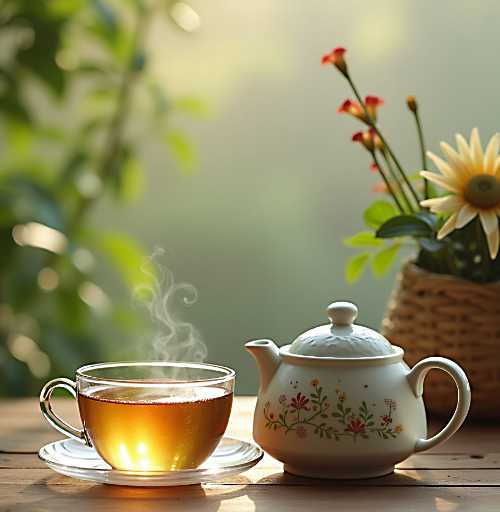How to Begin a Tea Moment:
Everyday Ritual for Emotional Balance
In traditional Chinese culture, tea is more than a beverage—it is a way of settling the spirit. The act of preparing and drinking tea, when done with intention, becomes a form of moving meditation. It brings us into the present moment, calms the heart, and clears the mind. Unlike formal seated meditation, a “tea moment” is gentle and accessible. You don’t need silence or a cushion—just time, attention, and a willingness to slow down.
 This connection between tea and emotional balance has deep roots. In classical Chinese thought, emotions arise not only from the mind but also from the organs. Anxiety can disturb the heart, worry can bind the spleen, and frustration can block the liver. A warm cup of tea, taken in stillness, soothes these internal movements. The warmth descends to the center, the aroma lifts the spirit, and the quiet act of sipping draws scattered thoughts back to the body.
This connection between tea and emotional balance has deep roots. In classical Chinese thought, emotions arise not only from the mind but also from the organs. Anxiety can disturb the heart, worry can bind the spleen, and frustration can block the liver. A warm cup of tea, taken in stillness, soothes these internal movements. The warmth descends to the center, the aroma lifts the spirit, and the quiet act of sipping draws scattered thoughts back to the body.
You don’t need to perform a formal tea ceremony to benefit from this. A personal “tea moment” can be as simple as ten minutes in the late morning or afternoon when you step away from work and sit with a single cup. The key is rhythm and presence. Choose one or two teas that suit the season—perhaps roasted "oolong" in autumn or delicate green tea in spring. Use a cup that feels good in your hands. Boil fresh water. Let the aroma rise before drinking. Then sip slowly, without reading, scrolling, or speaking.
The purpose is not to analyze flavor notes or impress anyone. It is to invite Jing (静)—stillness—into your day. With regular practice, this quiet moment becomes a kind of refuge, a space where emotions can settle without needing to be “fixed.” Over time, you may notice your breathing deepens, your voice softens, and you return to tasks with greater steadiness.
In Chinese medicine, the flavor and temperature of tea also affect the body’s Qi (气). Bitter or astringent teas can clear heat and frustration; warming teas can support digestion and help “anchor” the spirit when emotions feel unmoored. But the greatest benefit often lies not in the properties of the tea, but in the ritual itself—the pause, the breath, the willingness to do one thing at a time.
A tea moment can also be shared. Drinking tea with a friend, especially in silence or soft conversation, creates resonance between spirits. It teaches presence and respect. In this sense, tea becomes a quiet teacher—not of doctrine, but of awareness. Each sip is a reminder: there is time. There is space. The heart can rest.
Vocabulary Guide
Jing (静) – Stillness, calm, or tranquility; a fundamental quality cultivated in many Chinese healing practices.
Qi (气) – Vital energy or life force; in this context, it refers to the energetic effects of tea and emotion.
Tea moment – A personal or shared practice of drinking tea mindfully, without distraction or rush.






